Featured // Vol. 31, No. 4
This Is Country Music
essay by Amanda López
Our Past
Browse past issues and articles from the last 30 years
 Art
Art
Here We Come Again
by Southern CulturesFrom autographs to photographs, and from behind the scenes to front of stage, we offer a sneak peek of country music fandom as found in the Grand Ole Opry archives. Southern Cultures will exhibit “Here We Come Again” at the Center for the Study of the American South in Spring 2026. Check back for more »
 Music
Music
Y’all Belong
by Marcie Cohen FerrisJuly 20, 1969. I was twelve years old and at Jewish summer camp in Missouri, where we gathered in a giant circle in a field and sang “Aquarius” as Apollo 11, carrying three American astronauts, landed on the moon. The Woodstock “Music and Art Fair” happened a month later. That June, the Stonewall Riots took »
 Memoir
Memoir
I Saw Sissy
by Sharony Green“And some of us so country and so baaaad / like the daddy on Good Times when he gets up to / find a Western on TV and he pretends to be / John Wayne while he doing it” I saw Sissy in Urban CowboyA woman riding on a mechanical bullcould make men wake up »
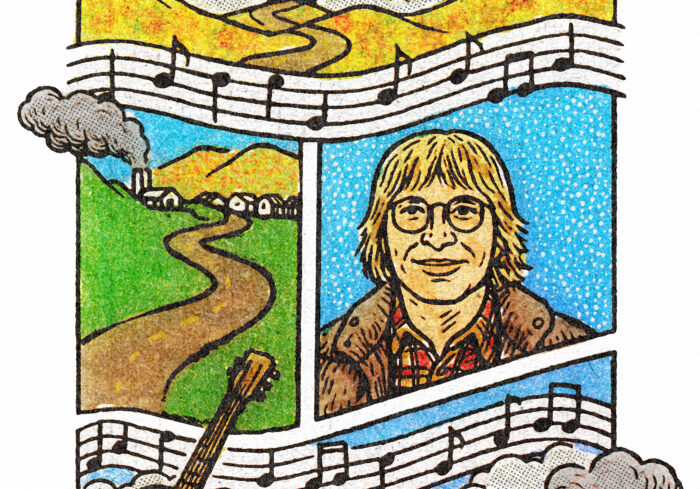 Music
Music
A Region of the Mind
Myth and Place in "Take Me Home, Country Roads"
by Sarah L. Morris“Despite naming West Virginia,‘Country Roads’is placeless in the way that it draws upon a sense of mythical, imagined place-belonging and community.” Sometimes, I like to sidle up to a jukebox in a dive bar and select the iconic “Take Me Home, Country Roads.” What happens next tells me a lot about the other people in »
 Interview
Interview
Making Our Own Ecosystem
by Frankie Staton, Rissi Palmer, Holly G, Amanda Marie MartínezReflecting on a century of country music, I could think of no one better to talk to than Frankie Staton, Rissi Palmer, and Holly G to get a finger on the pulse of the country music industry. Although the history of the country music business is a story of impressive commercial success, its growth has »
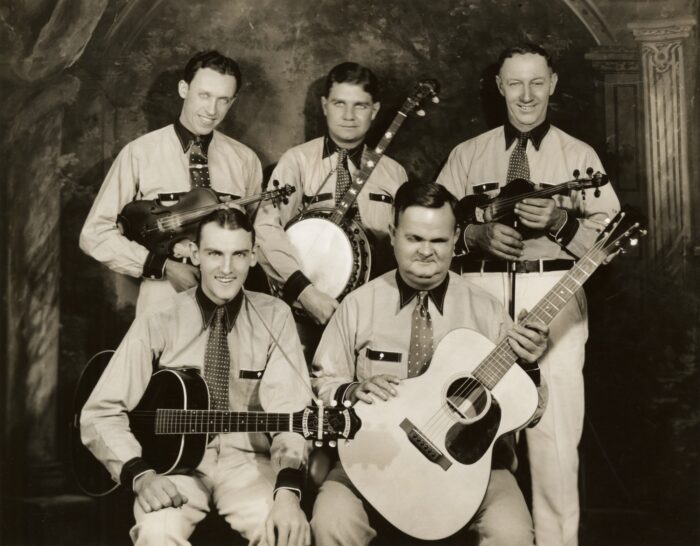 Music
Music
A Fading Caricature
Riley Puckett and Country Music's Silencing Power
by Cameron Knowler“Riley’s continuous success in his lifetime . . . demonstrates that his musical talent and ambition transcended the marketing initiatives that ubiquitously upsold his disability.” A case study of Riley Puckett, a bestselling—yet largely forgotten—name in the fledgling country music industry of the early 1920s, starkly demonstrates how the genre’s century-long appeal to authenticity is »
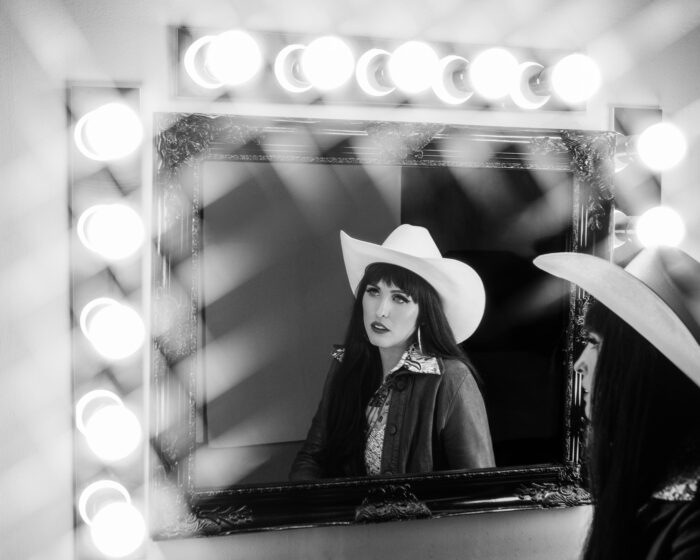 Music
Music
This Is Country Music
by Amanda LópezI was nine years old when I heard country music for the first time. My favorite cousin, Ruthie, was watching my sister and me while my mom was away. I loved her because she never treated me like a kid. She had us learn the lyrics to some of her favorite CDs to keep us »
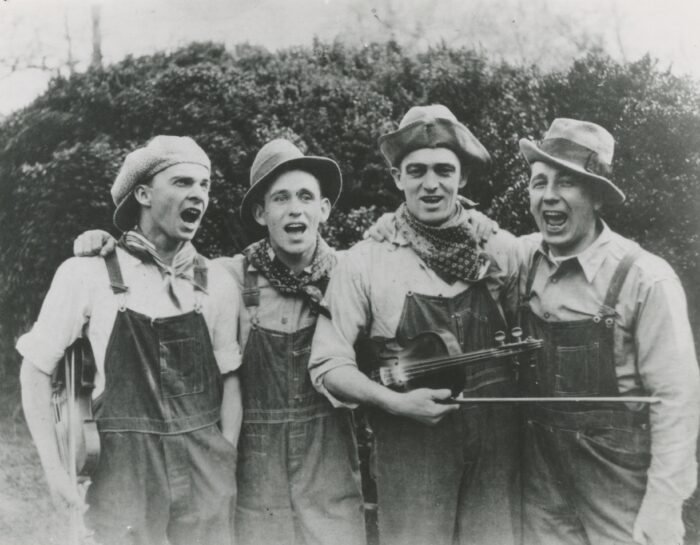 Music
Music
Hillbilly Overalls
Dressing a Modern Vernacular
by Sonya Abrego“Country or hillbilly music and overalls are part of a modern vernacular; the music and garments evoke nostalgia for a ‘simpler’ past, while being the products of commercial enterprise and industrial modernity.” Westernwear is having a moment that’s bringing attention to the fashion of country artists past and present. It’s not the first time that »
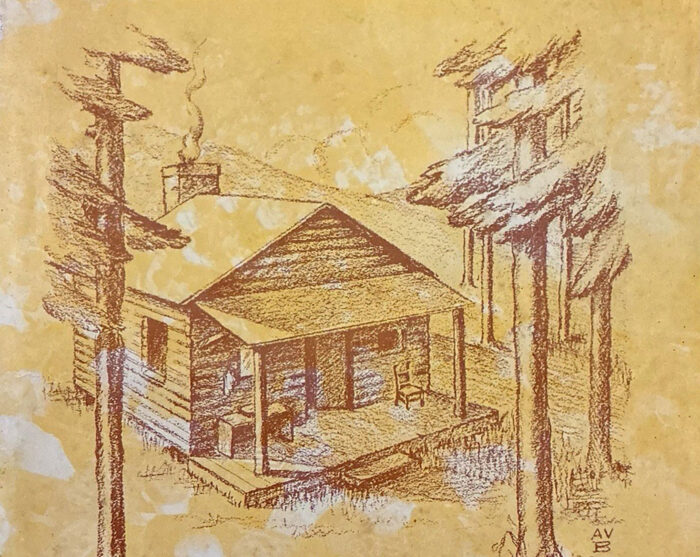 Music
Music
The Log Cabin that Never Was
by Brooks Blevins“By his own account, the model for the Grand Ole Opry radio show was a hoedown Hay attended ‘in a log cabin about a mile up a muddy road’ outside a little Arkansas burg called Mammoth Spring.” It’s a Monday in late August. I stand in the middle of a dirt road, flush on the »
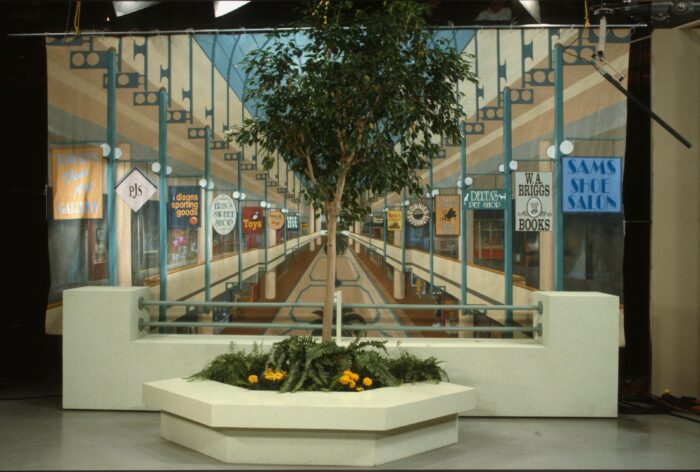 Music
Music
“There’s a Place Down by the Mall”
Locating Country Music's Modern Landscape
by Amanda Marie MartínezIt’s a Tuesday afternoon at Southpoint Mall in Durham, North Carolina. As I window shop, I notice LeAnn Rimes’s “Nothin’ Better to Do” playing from the speakers. It’s followed by a pleasant but unassuming mix of songs from Kenny Chesney, Miranda Lambert, and Kacey Musgraves. This is a country music playlist. On my last two »
 Poetry
Poetry
A Day of It
Selected Poems
by Michael ChitwoodA Day of It He’d put on a pot of beansand leave them to simmerthen rake a pile of leavesfrom her old flower bedsand get a smolder started.He’d cut a plug of Brown Muleand tuck it in his cheekthen lean on the rake,shifting the pile now and thento let air to the fire,arranging the sparksand »
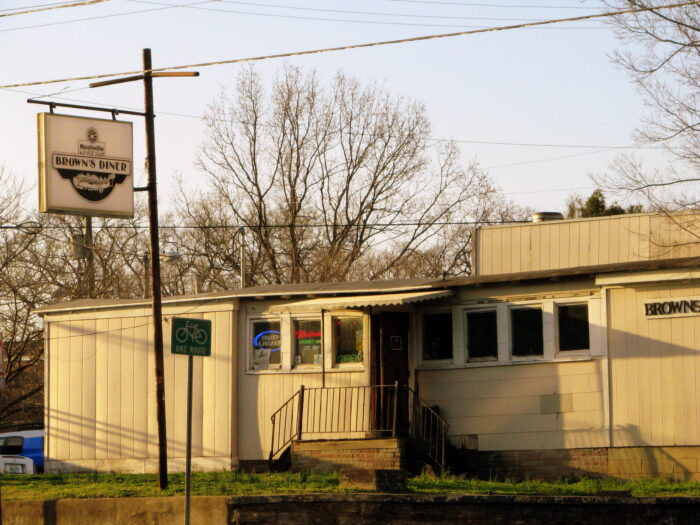 Poetry
Poetry
After 96 Years of Business, Brown’s Diner Begins Serving Impossible Burgers
by Lou TurnerBut I always had a bit of an authenticity complex,plus, D the waitress whispers, that’s not real Brown’s.and when my town has built an empiric tourism industryaround “authenticity”—something they stole to begin with—it’s hard to smell the stakes through mouthfuls of fake blood.Even Brown’s changed ownership recently and began renovation. I do wish to do »

